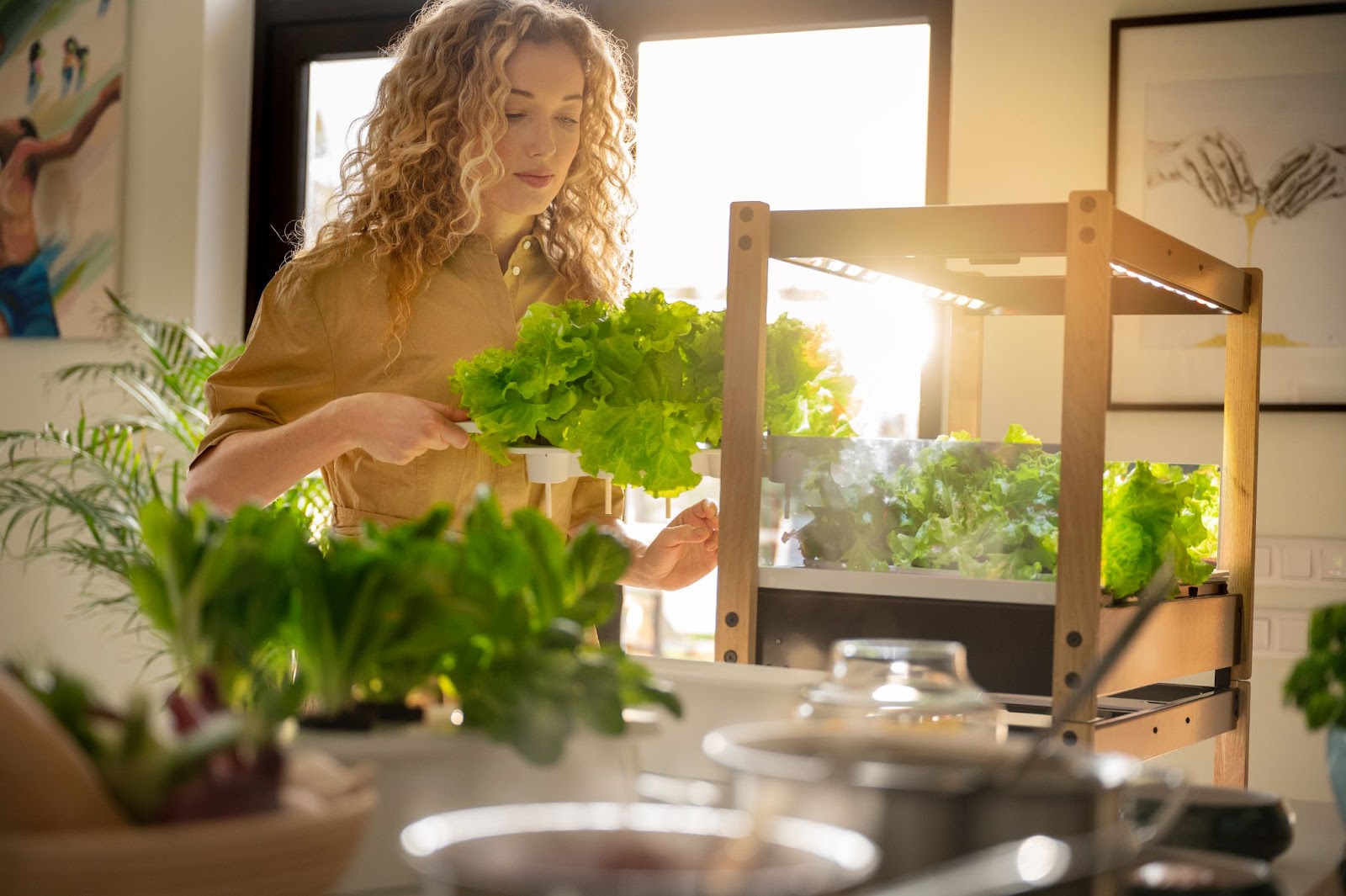Have you ever thought about growing your own food? The advantages are numerous: you get fresh healthy greens from the comfort of your own home, you experience a new hobby and it’s a great way to get back to nature. But what if growing your own food could help contribute to the environment at the same time?
Here are a few reasons why you’re being kind to the planet by growing some of your own food:
You’re saving water
As World Water Day is upon us, it seems only right to start with this point. In a world where we have countries experiencing severe water shortages, and some predicted to be almost uninhabitable in the future due to the climate crisis, conserving fresh water becomes all the more important.
Did you know that agriculture is responsible for 70% of water used worldwide? This includes water used to irrigate crops as well as rear cattle, poultry and fish. Water is essential to every stage of the food production process, as well as in all types of food.
By growing some of your own food at home, you’re actively helping to save water. Click and Grow smart gardens are an example of an indoor growing system that lets you do this. Smart gardens use 95% less water than traditional agricultural methods.
By growing food at home and saving water, you’re benefiting future generations, the environment, and wildlife. Reducing our water usage means less energy is needed to process and deliver it to homes, farms, businesses and communities. Which brings us nicely to our next point…
You’re reducing food miles
Growing your own food is a great way to reduce food miles. What does ‘food miles’ mean? Essentially, it’s the distance between where food is grown and where it’s eaten. A recent article published by the EU revealed that global food miles are responsible for almost 20% of all CO2 emissions from food.
When you grow your own food, you’re helping to reduce the distance food must travel to reach your table. You’re also helping reduce the number of car journeys you make to buy food from markets or shops. Less vehicle journeys means less CO2 emissions. Less CO2 emissions is good news for our planet!
You’re reducing food waste
When you hear the term, ‘food waste’, what comes to mind? For some, it might be the thought of spoiled milk in the refrigerator or moldy bread that’s been sitting on a counter. In reality, the problem is much bigger than that. Food waste is a worldwide issue that affects the environment as well as our health.
To give you an idea of how serious it’s becoming, the United Nations estimates that around 14% of the world’s food (valued at a whopping $400 billion per year) continues to be lost after it’s harvested and before it reaches stores.
On top of that, it’s estimated that 17% (a staggering 931 million tons of food) ends up being completely wasted. And guess what? Much of this waste happens in households. We’re all guilty of it.
When we throw away food, we’re contributing to pollution without even realizing it. Wasted food ends up in landfills and releases methane, a greenhouse gas that’s 25 times more powerful than carbon dioxide. When methane is released, it sticks around for 12 years, trapping heat from the sun, which is bad news for climate change.
A lot of food is wasted because it’s bought, stored in a cupboard or fridge and then forgotten about. When you grow your own food, you don’t have to worry about keeping a stockpile of groceries. You’re in control of the amount you grow, helping you waste less. You also get to harvest food when it’s ready to be harvested, leading to fresher tasting produce that’s more nutritious.
You’re reducing pesticide use
It’s unsettling to think that the produce we buy in supermarkets has likely been exposed to harmful chemicals such as pesticides. While pesticides are only intended to kill pest species, unfortunately they can have a much wider impact on the environment.
Pesticides can drift beyond their target area, decreasing the biodiversity of soil, eliminating food sources that animals rely on, and harming aquatic life. Growing your own food gives you peace of mind that what you’re eating is safe and free from any harmful substances. Particularly when you’re growing food in an indoor garden, there’s no need for pesticides because the plants aren’t plagued by pests and diseases.
If you’re interested in growing some of your own food, why not start this month? Your health and the planet will thank you for it!
All images: Click and Grow
